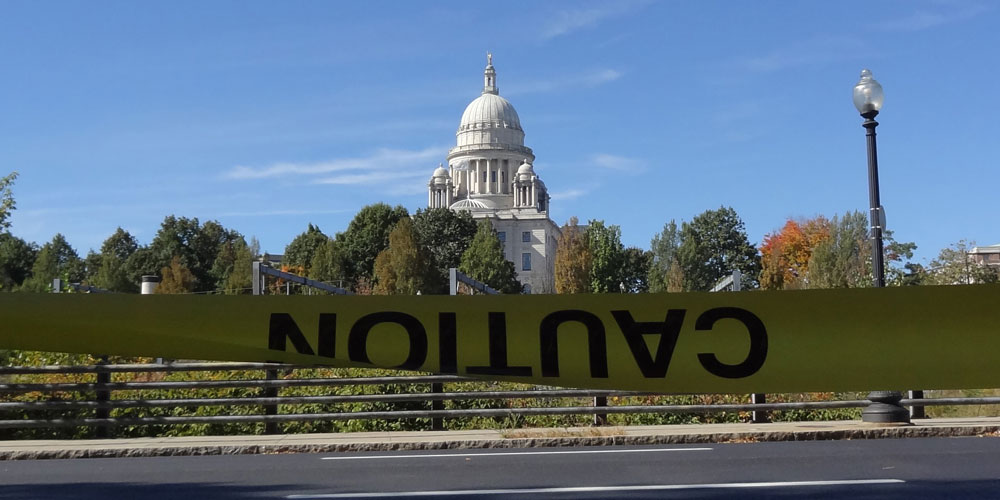
Is RI less corrupt because the BOE fined Moira Walsh?
Campaign finance law is one area in which contrarianism is certainly justified. Imposing detailed accounting requirements for every candidate for every office, whether executive or legislative, at every level of government, whether volunteer or paid, is simply a regulatory disincentive for people to become involved.
Nobody will be surprised to learn my opinion that the state is better off without the progressive policies for which Moira Walsh and Jennifer Douglas would vote as a legislator, but what does the state accomplish with this:
Walsh was fined $750 in part for failing to report 17 expenditures. She has 180 days to pay it from personal funds. The audit looked at reports and documentation for the period Jan. 1, 2019, through June 30, 2021. Her campaign account is now listed as inactive.
[Johnston Town Council member Robert] Russo was fined $2,000 for incorrectly reporting a $22,344.60 loan repayment. He has has 120 days to pay.Both Walsh and Russo did not respond to Target 12’s repeated requests for comment.
The BOE fined [state senate candidate Jennifer] Douglas for not disclosing 40 transactions. She has until Dec. 31 of next year to pay $1,200.
The most likely thing the state accomplishes fining single mothers hundreds of dollars over their campaign finance accounting is persuading other working Rhode Islanders not to bother. Especially at the municipal level, where people should be encouraged to put a toe in the game of civic participation, these regulations are a discouragement.
In fact, we could speculate that the more likely somebody is to have an angle to benefit personally from politics, the more tolerant that person will be of regulatory hoops. If that’s correct, then campaign finance regulations actually increase corruption. Good-government watchdogs should be more concerned about rot on a more-fundamental scale: revolving doors, union organizers’ voting on union member benefits, lifetimes of job security, shuffling from one insider job to another.
Knowing that somebody gave a candidate $30 or that another candidate spent campaign funds on household groceries or that a big expenditure was actually a loan repayment tells Rhode Island voters nothing except that engaging in politics is a hassle.
Featured image by Justin Katz.

It seems from your argument that you would prefer no campaign oversight at all. I can attest to the fact that the reporting requirements are not onerous on their face. The reporting forms/methods could certainly be more streamlined, but the need to publicly disclose the receipts and disbursements of candidates is one of the few ways the public can see who is financing and who is profiting from candidacies and/or ballot advocacy.
Honestly, my views in this area are so contrarian that I haven’t had to figure out where my boundaries are, so I don’t know whether I’d say no campaign oversight. I’m sympathetic to the argument for knowing who might be trying to buy politicians’ favors, and if the information is available, I’ll definitely make use of it, but I’m becoming less and less convinced it serves much purpose. I’d say it serves even less at the local level and in a legislature, where the only power for most is a single vote among dozens.
In decades of watching this stuff at the state and local levels, I’ve seen people get tripped up with missing deadlines or filing things incorrectly. (You say it’s not onerous, but I can go through most local candidates’ filings and find errors they probably don’t know they made.) I’ve seen people call up donors to try to intimidate them. I’ve seen people create false political narratives to spread rumors about. And I’ve seen campaigns use this information to take away competitive advantage.
I don’t think I’ve seen anybody find anything that did much on the “who is profiting from candidacies and/or ballot advocacy” front.